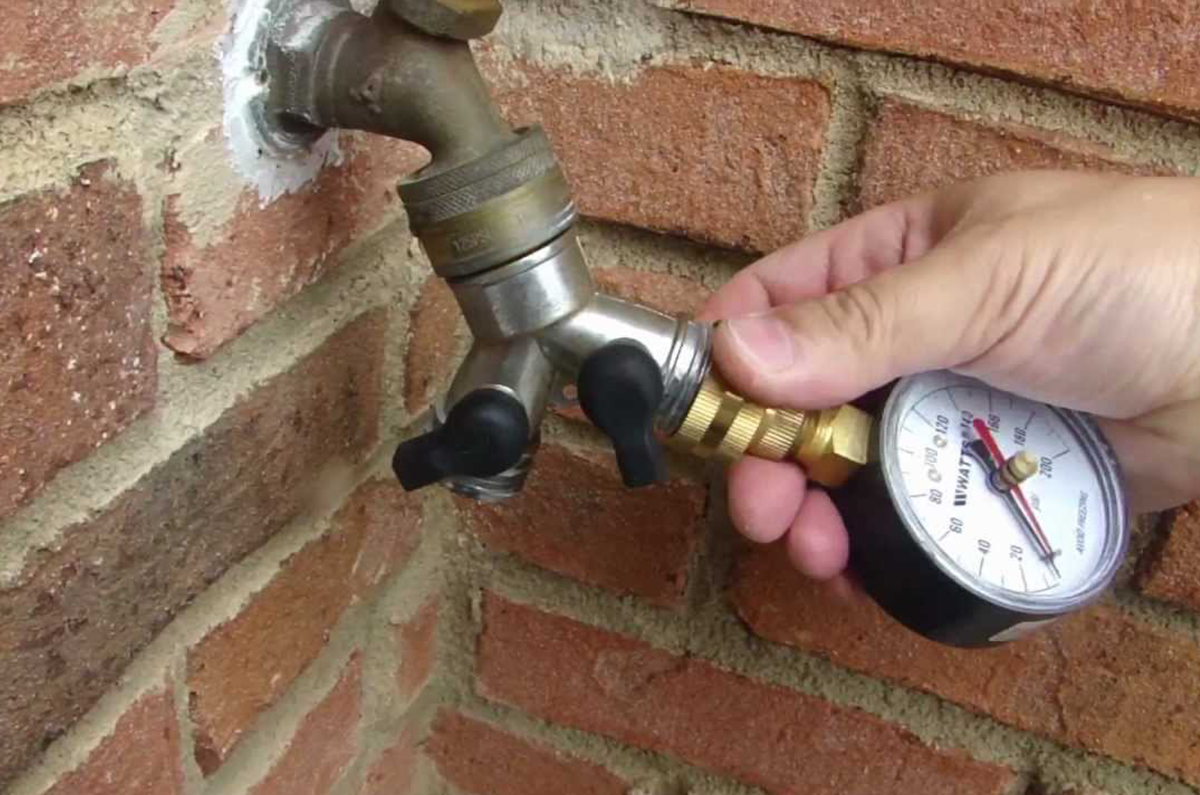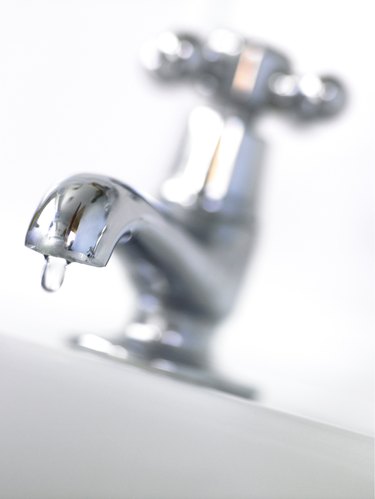Clear Strategies for Fixing Low Water Pressure in Your Home
Clear Strategies for Fixing Low Water Pressure in Your Home
Blog Article
Here underneath you will discover lots of exceptional tips regarding 4 Ways to Troubleshoot Low Water Pressure.

Low water pressure in your home can be an aggravating problem, affecting whatever from bathing to cleaning dishes. If you're experiencing weak water circulation, there are a number of possible reasons and options to explore. In this overview, we'll go over common reasons for low water stress and sensible actions to address the problem successfully.
Introduction to Low Tide Pressure
Low water stress takes place when the flow of water from your faucets, showers, and various other fixtures is weak than normal. This can make day-to-day jobs more tough and less reliable. Understanding the sources of low water pressure is crucial to finding the ideal remedy.
Common Sources Of Low Water Stress
Faulty Pressure Regulatory Authorities
Stress regulators are accountable for preserving regular water pressure in your home. If they malfunction, it can cause low water stress or unequal circulation throughout your house.
Municipal Supply Of Water Issues
Sometimes, the issue exists outside your home. Community water concerns, such as main line leakages or upkeep work, can briefly lower water stress in your area.
Pipe Obstructions
In time, pipelines can become blocked with mineral deposits, sediment, or particles, limiting the circulation of water. This is an usual problem in older homes with galvanized steel pipelines.
Deterioration
Deterioration within pipes can bring about leaks and reduced water pressure. Corrosion build-up can restrict water flow, especially in aging plumbing systems.
Just How to Detect Low Tide Pressure
Checking Pipes
Examine visible pipelines for indications of leakages, corrosion, or clogs. Take notice of any kind of uncommon audios, such as banging or rattling pipelines, which can suggest issues within the plumbing system.
Consulting with a Plumber
If you're unable to determine the cause of low water stress, consider working with an expert plumber to perform a complete examination. They can recognize underlying issues and advise appropriate services.
Examining Taps and Fixtures
Begin by checking the water stress at different faucets and fixtures throughout your home. If the concern is separated to details locations, it might indicate local problems.
Do It Yourself Solutions to Fix Low Water Pressure
Flushing Water Heater
Debris build-up in the water heater can limit flow and reduce performance. Flushing the storage tank regularly helps eliminate sediment and preserve optimum performance.
Examining Stress Regulatory Authority
Make sure that the pressure regulatory authority is functioning appropriately. Adjusting or replacing the regulator can help recover correct water pressure throughout your home.
Cleaning Up Aerators and Showerheads
Mineral deposits can gather in aerators and showerheads, reducing water circulation. Eliminate and cleanse these parts on a regular basis to enhance water stress.
Clearing Up Clogs in Piping
For minor blockages, attempt making use of a plumbing snake or chemical drain cleaner to clear obstructions in pipelines. Be cautious when using chemicals and comply with security standards.
When to Call a Specialist Plumber
If do it yourself initiatives stop working to resolve the issue or if you think significant plumbing issues, it's ideal to seek support from an accredited plumber. They have the expertise and tools to attend to intricate issues safely and effectively.
Preventive Measures to Preserve Water Stress
Setting Up a Pressure Booster
Think about setting up a stress booster pump to enhance water stress in areas with consistently low circulation. This can be especially valuable for multi-story homes or homes with high-demand components.
Tracking Water Use
Be mindful of water use habits and avoid ill-using the plumbing system. Straightforward changes, such as incredible showers and laundry loads, can assist preserve adequate water stress.
Regular Upkeep
Set up regular maintenance for your plumbing system to prevent concerns such as rust, leaks, and blockages. Resolving minor troubles early can assist avoid more significant repair services later.
Verdict
Handling low tide stress can be irritating, however recognizing the underlying causes and carrying out proper remedies can bring back optimum circulation throughout your home. Whether it's cleaning up aerators, evaluating pipelines, or consulting with a plumber, taking aggressive steps can make certain a consistent supply of water for your daily demands.
FOUR WAYS TO FIX LOW WATER PRESSURE NOW
Turning on a shower or faucet only to find the water comes out in a sad, slow drizzle is never a good feeling. How exactly are you supposed to wash a pan or take a quick shower when it takes 10 minutes just to rinse off a little soap? The good news is that when your water pressure is bad, there's always a cause: typically one that can be easily fixed. Here are some of the most common causes of low pressure and what you can do to fix the issue:
DEBRIS AND MINERAL DEPOSIT BUILDUPS
If you notice low water pressure from just one or two of the fixtures in your house, the problem likely has to do with debris buildup. Water is full of minerals and other debris, all of which can accumulate in your pipes and on your fixtures. This can cause a blockage that affects how much water flows through. To fix this, try filling a small plastic bag with white vinegar, and use a rubber band to hang it around your showerhead or faucet. Let the head of the fixture soak for a few hours, and the vinegar should loosen the deposits.
WATER LEAKS
Leaks are another common cause of low water pressure. If water is flowing out of your plumbing through a hole or crack before it can reach your fixture, the pressure coming out of the faucet or showerhead will be lower. A plumbing professional is your best bet for finding and repairing a leak in your water supply pipes.
Leaks are another common cause of low water pressure. If water is flowing out of your plumbing through a hole or crack before it can reach your fixture, the pressure coming out of the faucet or showerhead will be lower. A plumbing professional is your best bet for finding and repairing a leak in your water supply pipes.
A VALVE ISSUE
If you have low water pressure throughout your home, check your main shut-off valve to make sure it's completely open. You may also want to see if there's a pressure-reducing valve installed. If there is, have a plumber help you adjust the settings to get the pressure you're looking for.
OTHERS USING WATER
Believe it or not, your low water pressure could be caused by your neighbors. If you notice low pressure at certain times of day, it may be because you and the people living next to you have similar schedules - when everyone is showering at the same time, the pressure will be lower in every home. Low pressure throughout the neighborhood may also be caused by an issue with your municipal water supply. If that's the case, call the supplier to see if they're working on the issue.
https://www.rotorooter.com/blog/water-leaking/low-water-pressure-fixes/

I was brought to that article about Low Water Pressure in the House? through someone on our other domain. Sharing is good. Helping people is fun. We recognize the value of reading our article about 10 Reasons for Low Water Pressure in Your House.
Schedule Appointment Now Report this page